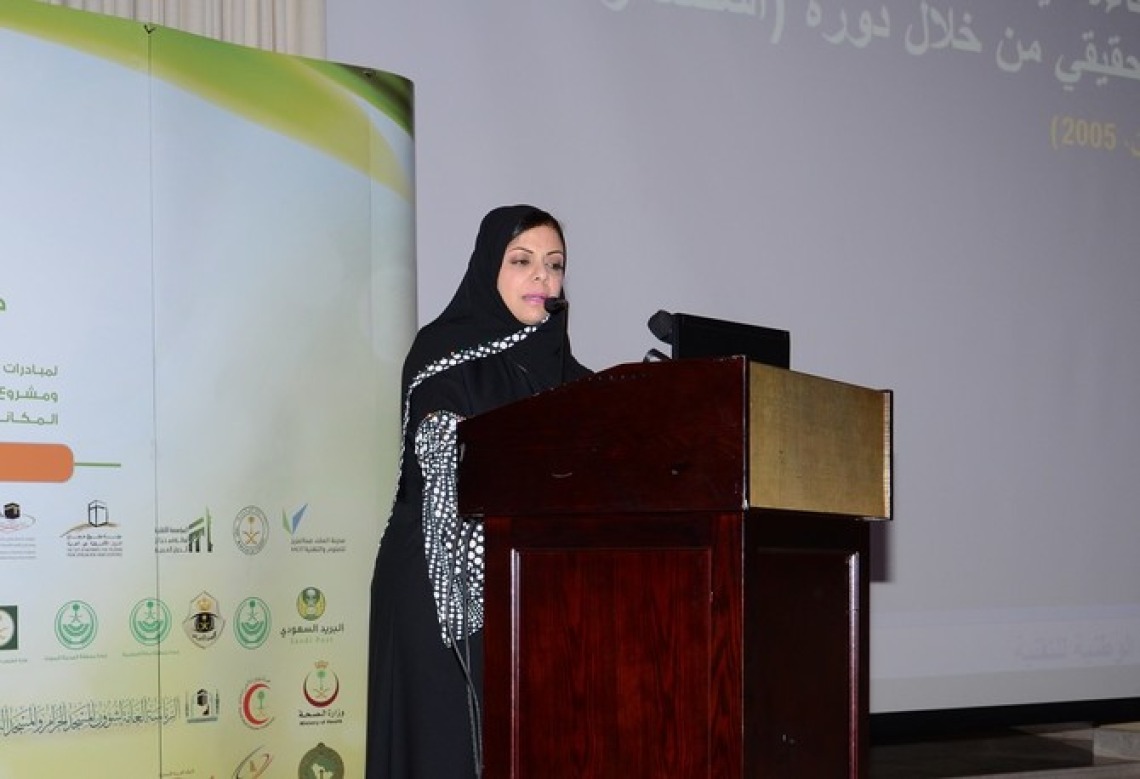Former CESL Student from Saudi Arabia Earns PHD in Artificial Intelligence

The following news originated from ArabNews.com:
DUBAI: Dr. Fatmah Baothman is no ordinary Saudi woman. She embodies women’s empowerment in the Kingdom, as the first woman in the Middle East with a Ph.D. in Modern Artificial Intelligence (AI).
Her AI journey started when she was a student at the University of Arizona studying the English language. She was introduced to computer systems that help and assist non-native English speakers.
“I was fascinated by the level of machine communication and interaction,” Dr. Baothman explained. “Once I started studying programing and understanding more about the Turing Test, which is a test that’s been designed to test the intelligence of machines, I became fascinated.”
In 2003, she graduated from the School of Computing and Engineering at the University of Huddesfield in the UK, where she earned a Ph.D. in “Phonology-Based Automatic Speech Recognition for Arabic.” Her work was primarily focused on AI and she was exposed to forecasting, pattern recognition, phonology and phonetics, acoustics, machine learning and mathematics.
Such work can be used to connect humans to machines in speech, as well as machines to machines, and raising intelligence in robotics. “We worked with a robot and we were able to increase its intelligence from four to seven years,” she noted. “Speech is a very important tool in different applications that could be used in smart cities, smart cars and smartphones—it’s about connecting machines and people, and machines to machines, even if they don’t speak our language, they find a way of communicating in which they can interact with each other.”
Dr. Baothman spoke of her fascination with machine communication. “I spent hours trying to figure out how it worked,” she said. “Once I started studying it, I started realizing and building an emotional interest towards the topic. I always had a wish to be a part of the AI community and contribute to such an important discipline.”
She became “emotionally attached” to AI, yearning to learn more. “It’s a never-ending science,” she added. “AI, generally speaking, is a growing science, and it could bring the best benefits to humanity by solving their complex problems, so it’s of interest to me.”
Her hope is to eventually tackle different fields with AI, such as the economy, by bringing new solutions that would help solve fluctuation issues, like crises and poverty. “I believe that, very soon, AI will play an important role in that,” she noted. “I’m interested in it and I’ve already started forming a group to work on it.”
She mentioned the financial sector in Saudi Arabia, which is slowly moving towards implementing AI at different levels. “It’s very important,” she said. “I hope to see a unified strategy for AI and I also hope to contribute to it.”
Her determination is what made her reach her goals. “I was working day and night, hours on end,” she said. “My thinking was how can I contribute and add to the community in AI, how can I transfer this technology and make use of it in my country and how can I assist the new graduates, make their path easier and their learning experience better and much more improved than what I had to go through.”
The Jeddah-born woman started working as an advisor with MMG (MedLab Media Group), a Spanish technology start-up focused on improving daily clinical practice and decision-making, which signed an agreement a couple of weeks ago with Advanced AI LLC, a Saudi company specialized in AI technology and products.
“It makes me feel very excited to be the first woman with a PhD in Modern AI,” she explained. “(We) are planning to establish an AI lab in Jeddah very soon to work in blockchain technology, AI projects and other areas, directed towards healthcare.”
She has also been working at the King Abdulaziz University for more than 25 years as an assistant professor in computing and information technology. Although she started off her career at a managerial level, she eventually played a vital role in establishing the university’s computer science department for women and became the first appointed teaching assistant in the department.
“It was very difficult at first and communication between men and women was hard,” Dr. Baothman said. “The internet wasn’t as it is now, and acquiring knowledge at that time was based on books only.”

